Bathing Without the Burden: Choosing Non-Toxic Shower Curtains for a Healthier Home
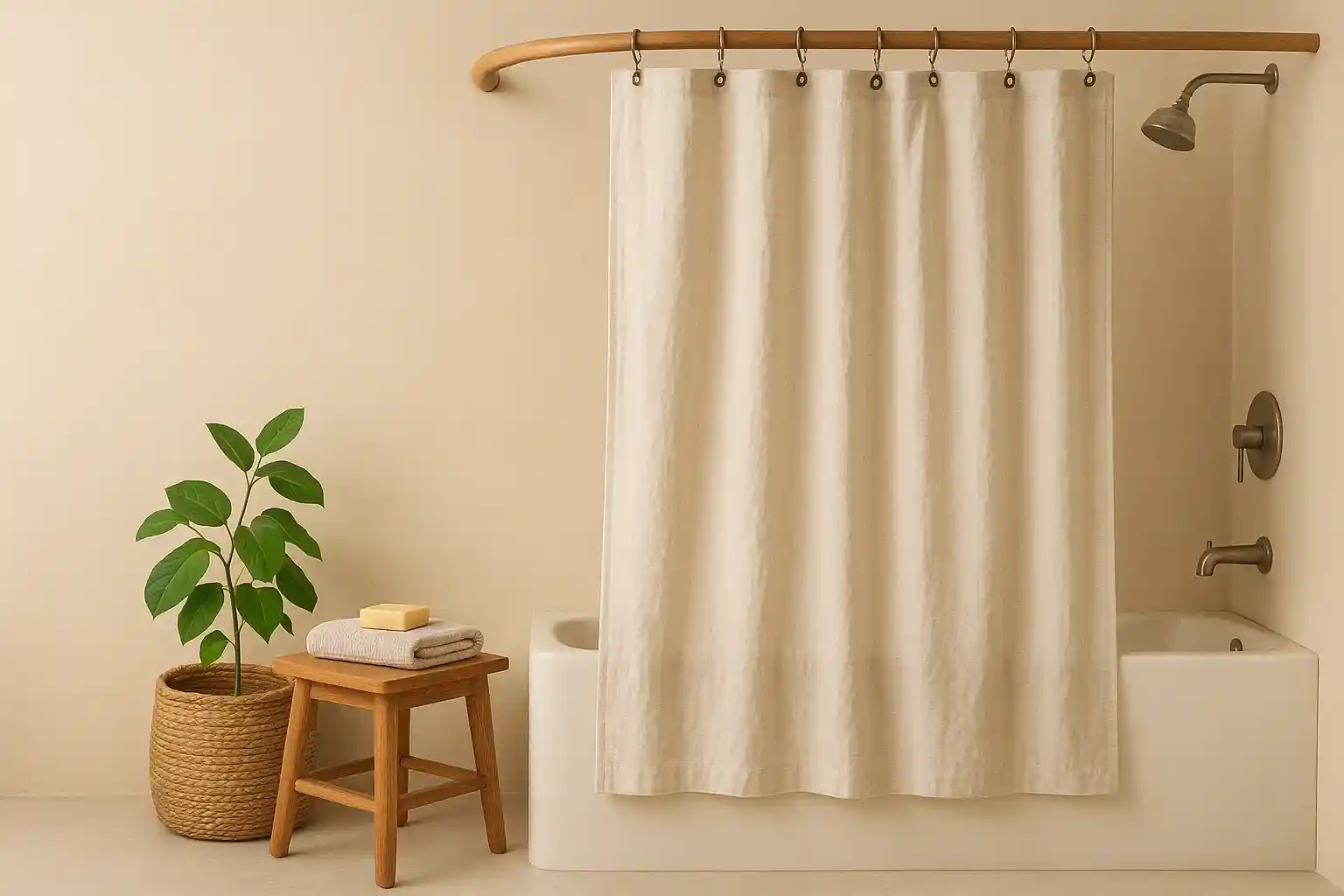
The shower curtain, a seemingly simple fixture in our bathrooms, plays a crucial role in containing water and maintaining privacy. For many years, polyvinyl chloride (PVC) has been a prevalent material choice for shower curtains due to its water resistance and affordability. However, PVC is a type of plastic known to release volatile organic compounds (VOCs) into the air, particularly when new or exposed to heat and humidity in the shower environment. These VOCs can contribute to indoor air pollution and may have adverse health effects, especially for individuals with sensitivities or respiratory issues. Furthermore, PVC is not readily biodegradable and can shed microplastics over time, adding to the growing problem of plastic pollution. For those seeking a healthier and more sustainable bathroom, opting for non-toxic shower curtain alternatives made from natural or safer synthetic materials is a significant step towards a cleaner and more eco-conscious home.
The concerns surrounding PVC shower curtains stem from their chemical composition and the potential for off-gassing. VOCs released from PVC can include phthalates, which are endocrine disruptors, and other chemicals linked to various health problems. The warm and humid environment of a shower can exacerbate this off-gassing process, leading to a higher concentration of these chemicals in the air we breathe during our daily cleansing rituals. Additionally, the production of PVC is environmentally intensive, relying on fossil fuels and releasing harmful byproducts. The non-biodegradable nature of PVC means that discarded shower curtains contribute to landfill waste for extended periods. The shedding of microplastics from PVC curtains during use and washing also adds to the pervasive problem of plastic contamination in our water systems and environment.
Fortunately, a range of effective and aesthetically pleasing alternatives to PVC shower curtains are readily available. By choosing curtains made from cotton, hemp, or PEVA (polyethylene vinyl acetate), we can significantly reduce our exposure to VOCs and microplastics while opting for materials with a lower environmental impact. These alternatives offer comparable water resistance and durability, allowing us to maintain a functional and stylish bathroom without compromising our health or our commitment to sustainability.
Breathing Easier in the Bathroom: Exploring Non-Toxic Shower Curtain Options
Nature provides us with durable and water-resistant fibers, and material science offers safer synthetic alternatives to PVC for our shower curtains:
Cotton Curtains: Natural Softness and Versatility
Cotton shower curtains offer a natural and breathable alternative to PVC. While not inherently waterproof, cotton can be treated with water-resistant coatings or used with a separate water-resistant liner made from PEVA or other safer materials. Organic cotton is an even more sustainable choice, as it is grown without the use of synthetic pesticides and fertilizers. Cotton curtains offer a soft and aesthetically versatile option, available in a wide range of colors and patterns. Brands like Parachute often feature cotton shower curtains with a focus on natural materials and stylish design. When paired with a non-PVC liner, cotton shower curtains provide a healthier and more eco-conscious choice for your bathroom.
Hemp Curtains: Strength, Sustainability, and Natural Resistance
Hemp is another excellent natural fiber for shower curtains, known for its strength, durability, and natural resistance to mold and mildew. Hemp is a fast-growing and sustainable crop that requires minimal pesticides and herbicides. Hemp shower curtains offer a unique texture and natural aesthetic. While they may also benefit from a water-resistant treatment or a separate liner for optimal water containment, their inherent properties make them a long-lasting and eco-friendly choice. Brands like Eucalyptus Origins often highlight the sustainability and natural benefits of hemp in their home textile products, including shower curtains.
PEVA Liners: A Safer Synthetic Alternative
PEVA (polyethylene vinyl acetate) is a non-chlorinated vinyl that is often used as a safer alternative to PVC in shower curtain liners. PEVA liners are water-resistant and more environmentally friendly than PVC as they do not release as many harmful VOCs and do not contain phthalates. While still a synthetic material, PEVA represents a significant improvement over PVC in terms of toxicity and environmental impact. Many retailers and brands, including Lush Decor, offer PEVA shower curtain liners as a readily available and more responsible choice for containing water in your shower.
Completing Your Non-Toxic Bathroom: Other Mindful Swaps
Choosing a non-toxic shower curtain is just one step towards creating a healthier and more sustainable bathroom. Consider these other mindful swaps:
- Natural Bath Mats: Opt for bath mats made from organic cotton, bamboo, or other natural fibers instead of synthetic options.
- Refillable Soap Dispensers: Reduce plastic waste by using refillable soap dispensers with natural liquid soaps.
- Bamboo Toothbrushes and Natural Toothpaste: Choose biodegradable alternatives for your oral care routine.
- Reusable Cotton Rounds: Replace disposable cotton pads with washable and reusable ones.
By consciously choosing non-toxic alternatives for even seemingly small items like shower curtains, we can create a healthier and more sustainable bathroom environment, contributing to both our personal well-being and the health of the planet.
Related Blogs
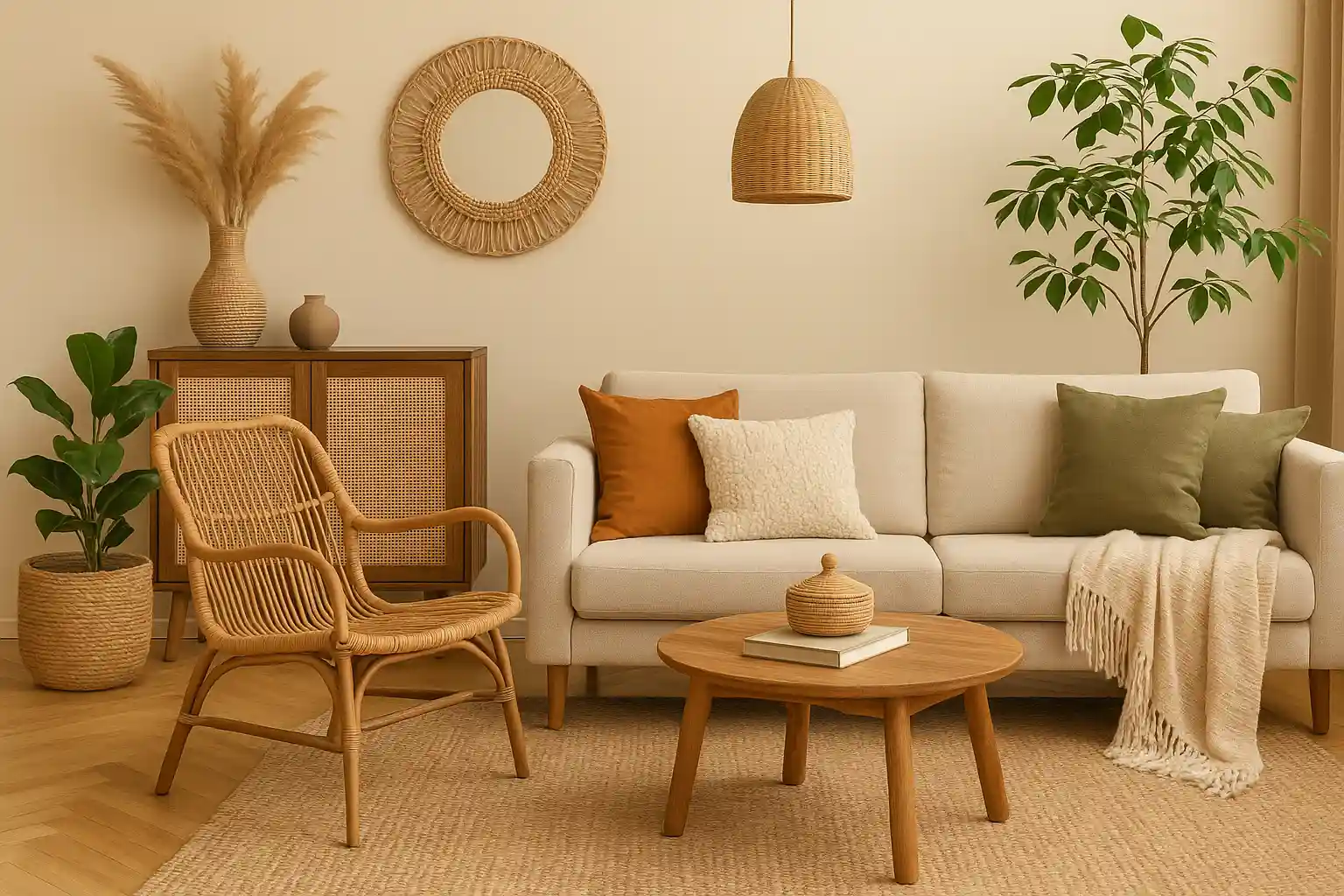
5 Home Decor Trends That Nurture Your Space and the Planet
Insights on 5 home decor trends that are also earth-friendly in a sustainable way.
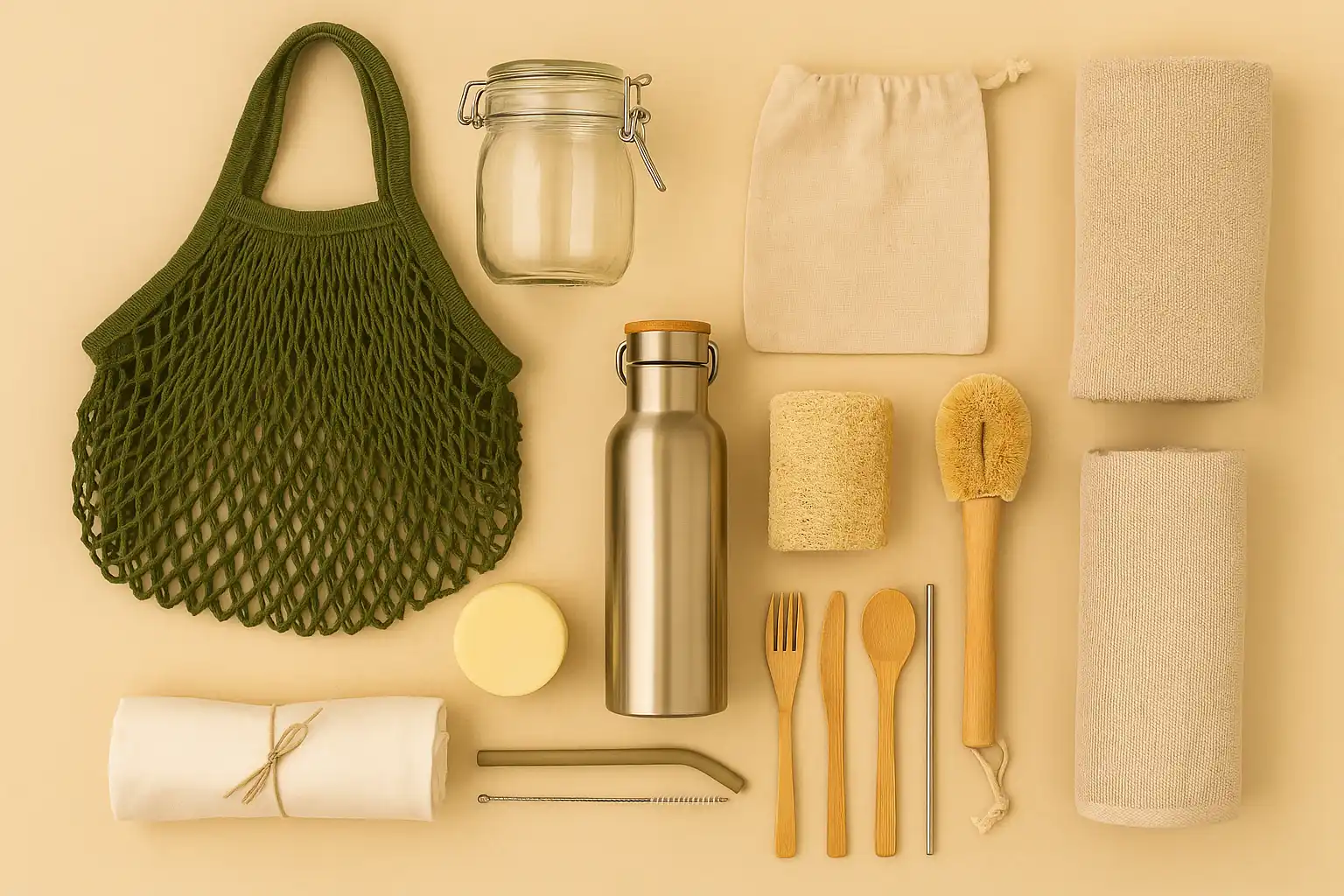
Laying the Foundation for a Greener Home: Your Eco Starter Kit
Insights on building an eco starter kit for your home in a sustainable way.
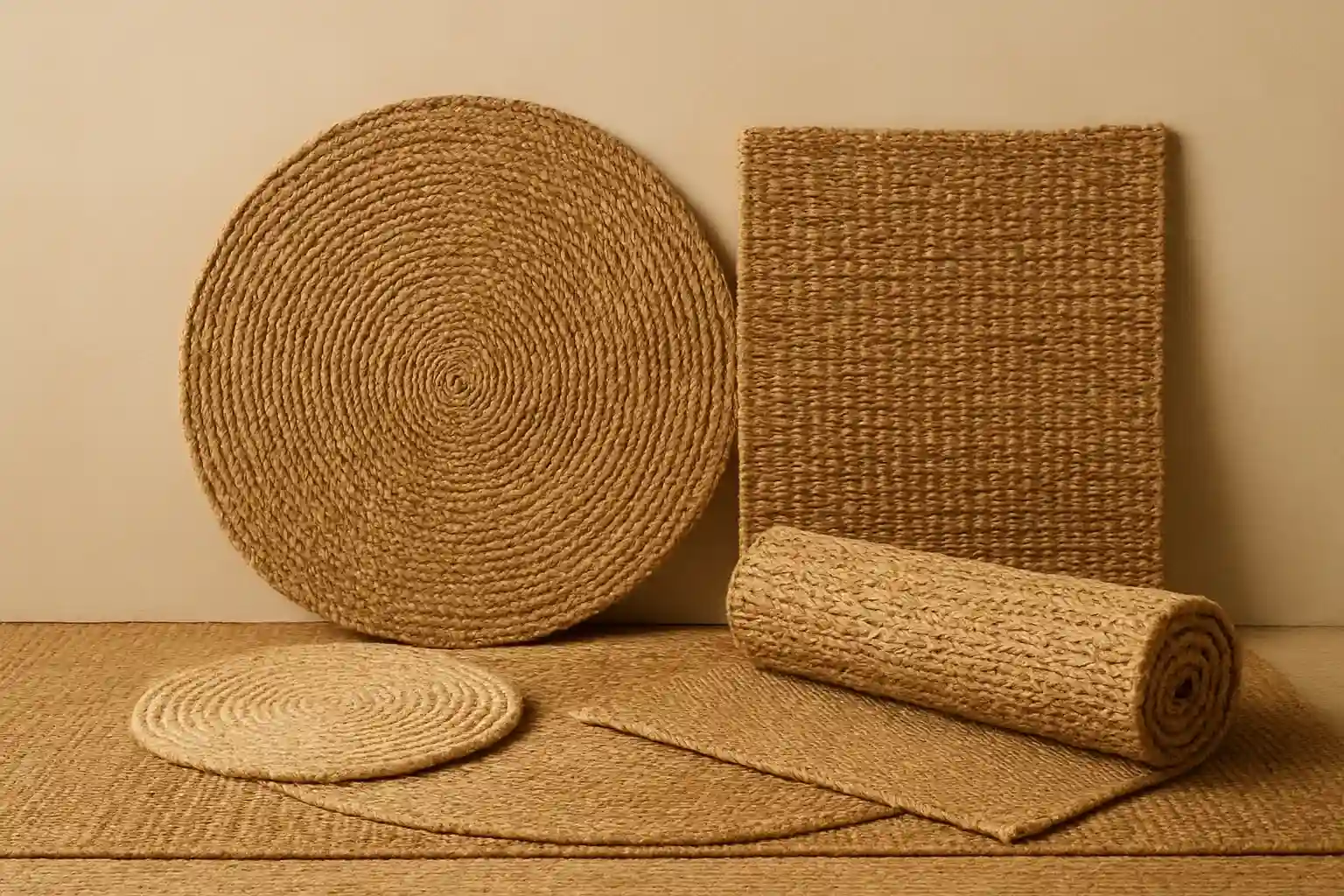
Step Softly on the Earth: Upgrading Your Home with Natural Floor Rugs
Choose biodegradable and non-toxic jute, organic cotton, or wool rugs over synthetic options.
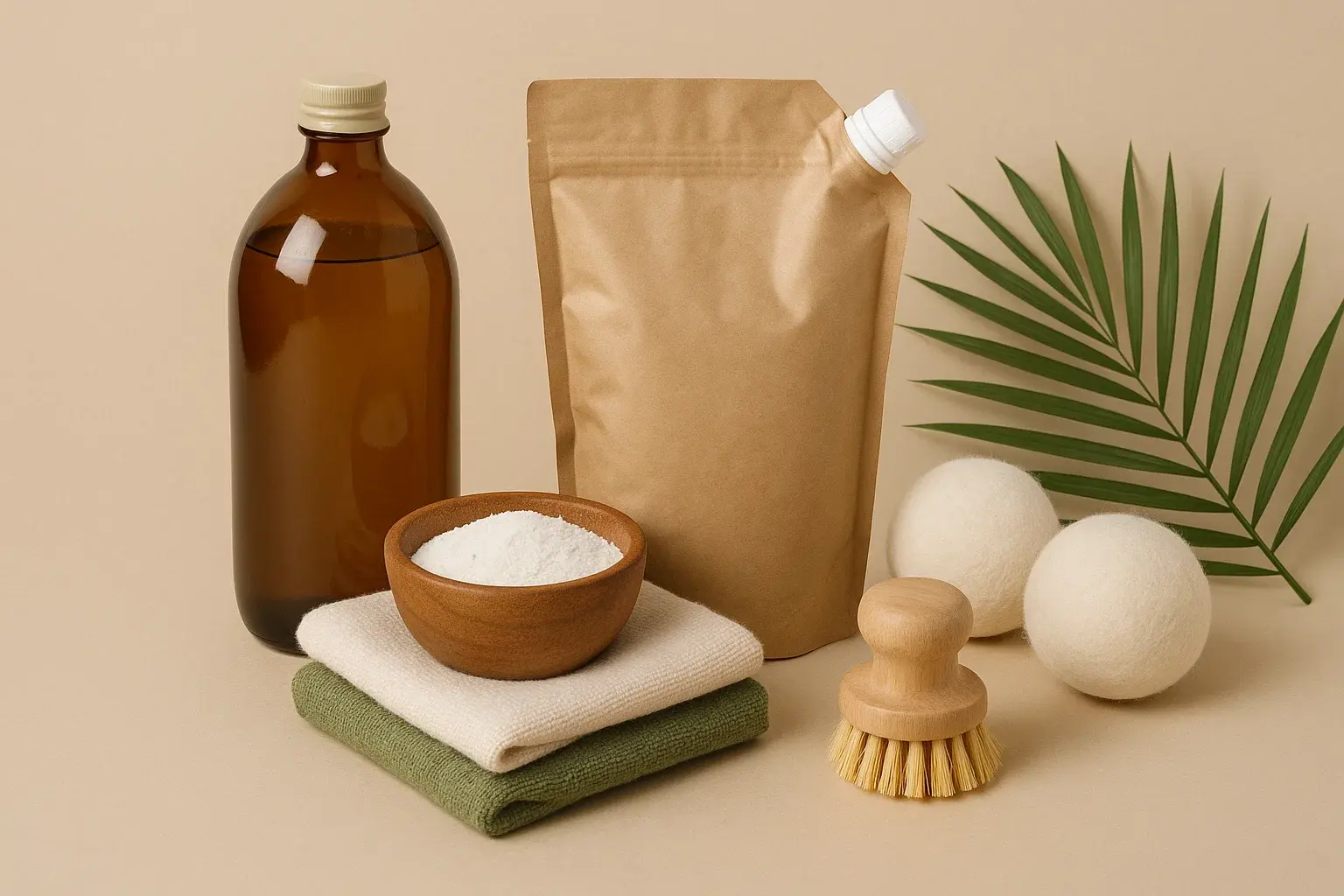
Clean Laundry, Clear Conscience: Sustainable Swaps for Conventional Detergents
Switch to soap nuts, eco-enzyme cleaners, or plant-based detergents for toxin-free laundry.
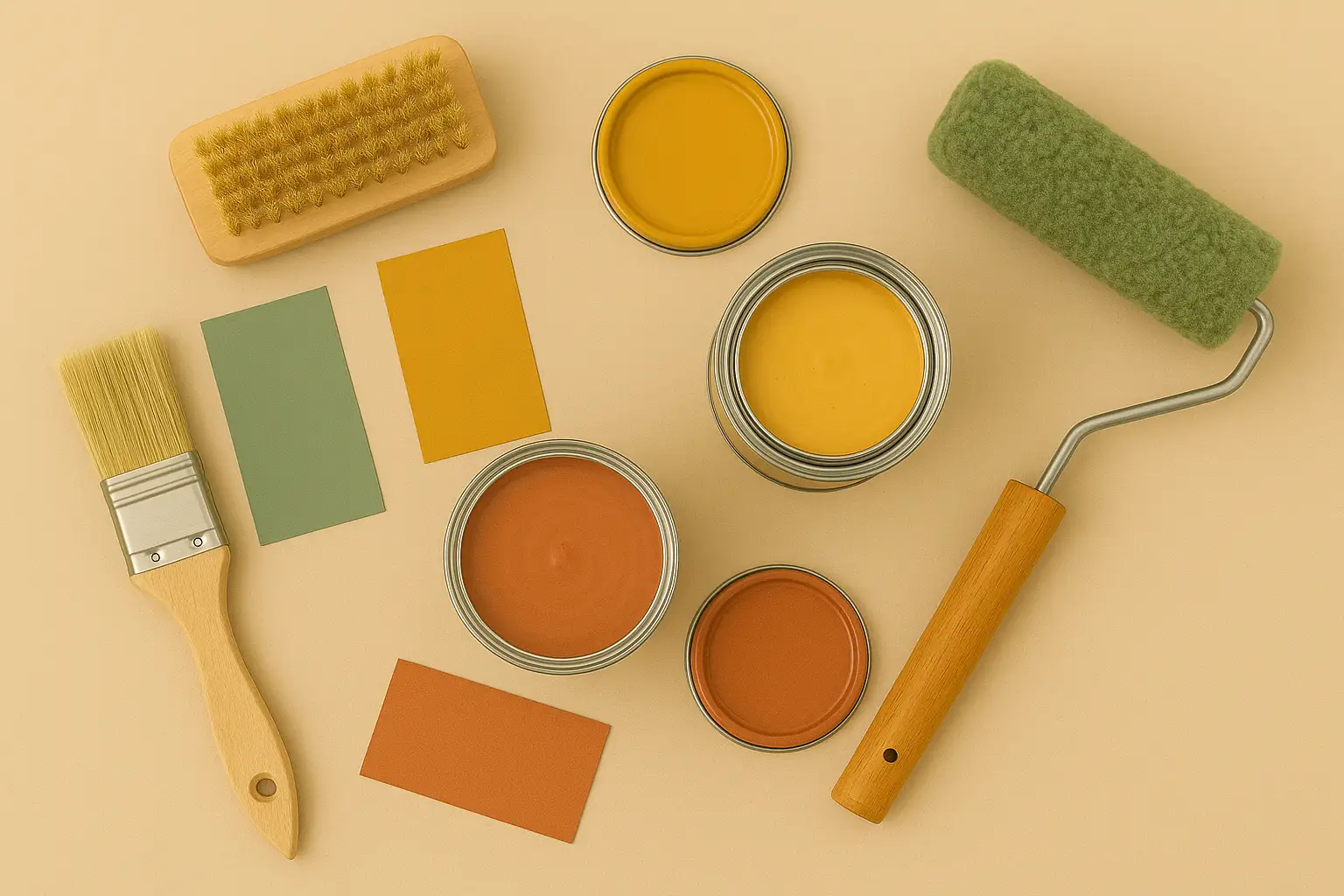
Breathing Easier, Living Greener: The World of Eco Paints and Finishes for a Healthier Home
Insights on eco paints and finishes for a healthier home in a sustainable way.
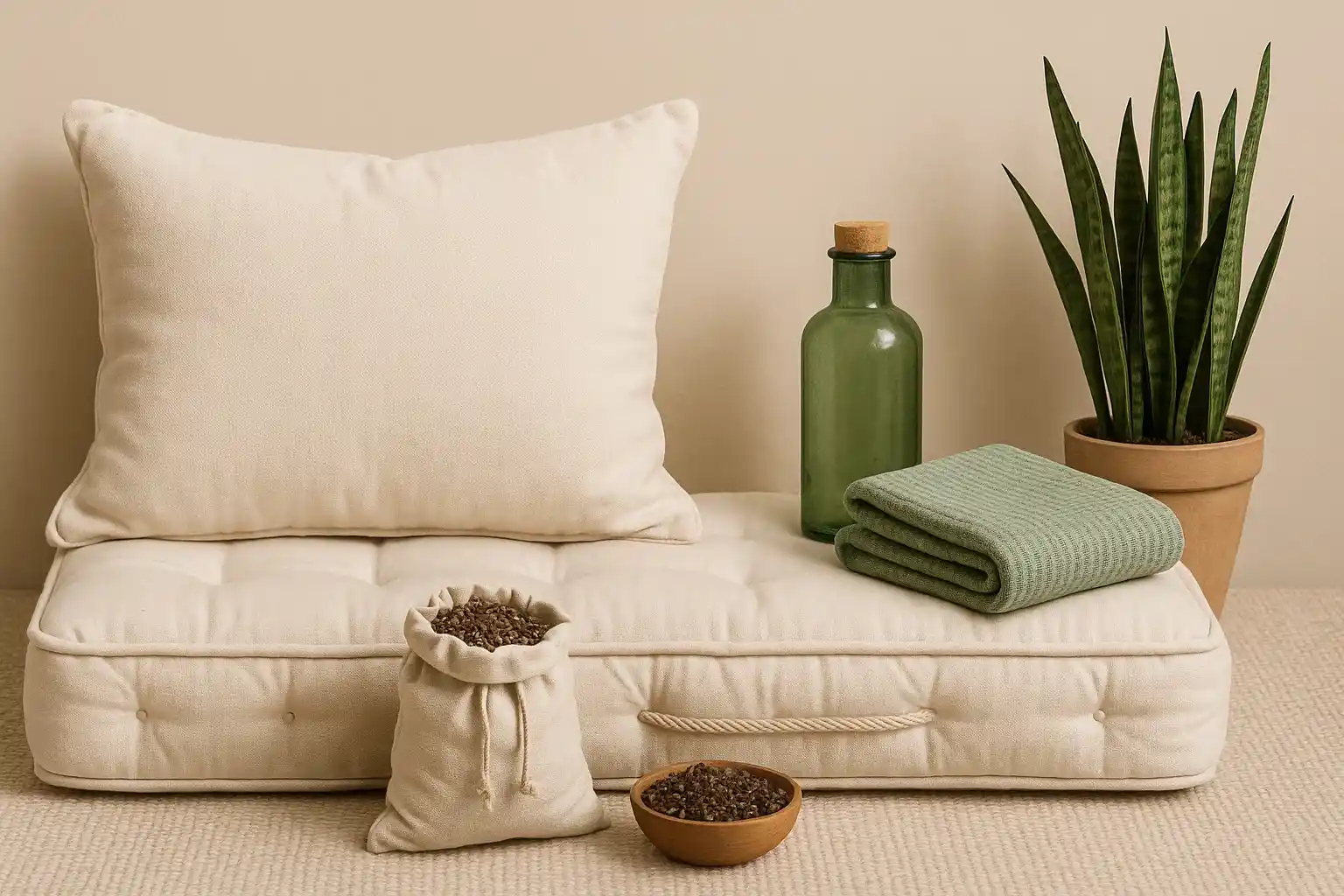
Dreaming of a Greener Sleep: Choosing Natural Mattress Toppers for a Healthier Bed
Upgrade your sleep with non-toxic, breathable, and biodegradable latex, organic cotton, or wool toppers.
Stay in the Loop
Get tips and insights tailored to your interests — no spam, just sustainability.